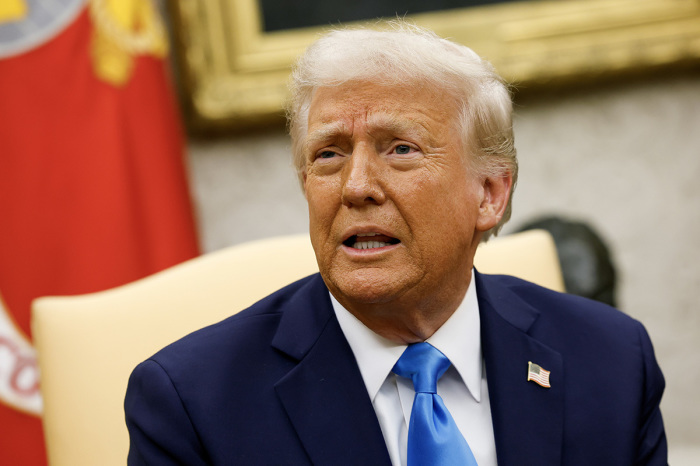
President Donald Trump signed an Executive Order Wednesday to establish a comprehensive national framework to prepare American students for the workforce of the future and spur innovation in American Artificial Intelligence.
“By establishing a strong framework that integrates early student exposure with comprehensive teacher training and other resources for workforce development, we can ensure that every American has the opportunity to learn about AI from the earliest stages of their educational journey through postsecondary education,” Trump states in the order, billed Advancing Artificial Intelligence Education for American Youth. Fostering a culture of innovation and critical thinking, the order explains “will solidify our Nation’s leadership in the AI-driven future.”
President Trump’s push to use AI in an attempt to help improve American education comes just months after the results of the National Assessment of Educational Progress, a congressionally mandated test designed to measure the general state of education nationally, painted a grim picture of student performance at both the fourth and eighth-grade levels in reading and math.
The data from the assessment showed that more than half of fourth graders nationwide have not mastered reading at a proficient level for their grade, and the share of students considered proficient is now 2 percentage points lower than two years earlier.
“The data shows that the majority of the nation’s school systems have failed to master effective reading instruction, ignoring not only how it should be taught (e.g., proven science) but also the importance of engaging students with rich content and literature that stimulates the mind and ensures that vocabulary and comprehension increase,” Center for Education Reform founder and CEO Jeanne Allen told The Christian Post in a statement.
“When students are not reading on grade level by third grade, their lifelong choices are severely limited. One long-term study found that when a student fails to meet this bar, they are four times more likely to drop out of school. In fact, 88 percent of these dropouts were struggling readers in third grade,” added Mindy Sjoblom of OnYourMark Education.
To spur innovation and better prepare students for the workforce of the future, the Trump administration will promote the integration of AI into education, provide comprehensive AI training for educators, and encourage early exposure to AI concepts and technology through a variety of public-private partnerships with schools and organizations in the AI industry.

The president’s policy on AI education will be implemented through the White House Task Force on Artificial Intelligence Education, with Michael Kratsios, director of the White House Office of Science and Technology Policy, serving as its chair.
Among the efforts to be implemented by the White House Task Force on Artificial Intelligence Education is the Presidential Artificial Intelligence Challenge. The task force is expected to have a plan for that challenge ready within 90 days of the order. The challenge is also expected to be held no later than 12 months after the plan is submitted.
“The Challenge shall encourage and highlight student and educator achievements in AI, promote wide geographic adoption of technological advancement, and foster collaboration between government, academia, philanthropy, and industry to address national challenges with AI solutions,” the order states.
The challenge is also expected to reflect various age categories “distinct geographic regions for competition, and a variety of topical themes of competition to reflect the breadth of AI applications, encouraging interdisciplinary exploration.”
The order further highlights how resources will be provided for K-12 AI education through the various public-private partnerships.
“The Task Force shall seek to utilize industry commitments and identify any Federal funding mechanisms, including discretionary grants, that can be used to provide resources for K-12 AI education. To the extent practicable and as consistent with applicable law, agencies shall prioritize funding for such purposes when it would further the aims of the program for which funding is available,” the order states.
The order also requires the secretary of Labor to seek to increase participation in AI-related registered apprenticeships within 120 days of the order.
A registered apprenticeship, according to the program’s website “is an industry-driven, high-quality career pathway where employers can develop and prepare their future workforce, and individuals can obtain paid work experience with a mentor, receive progressive wage increases, classroom instruction, and a portable, nationally-recognized credential.”
Registered Apprenticeships are also industry-vetted and approved and validated by the U.S. Department of Labor or a State Apprenticeship Agency.
Contact: leonardo.blair@christianpost.com Follow Leonardo Blair on Twitter: @leoblair Follow Leonardo Blair on Facebook: LeoBlairChristianPost


















